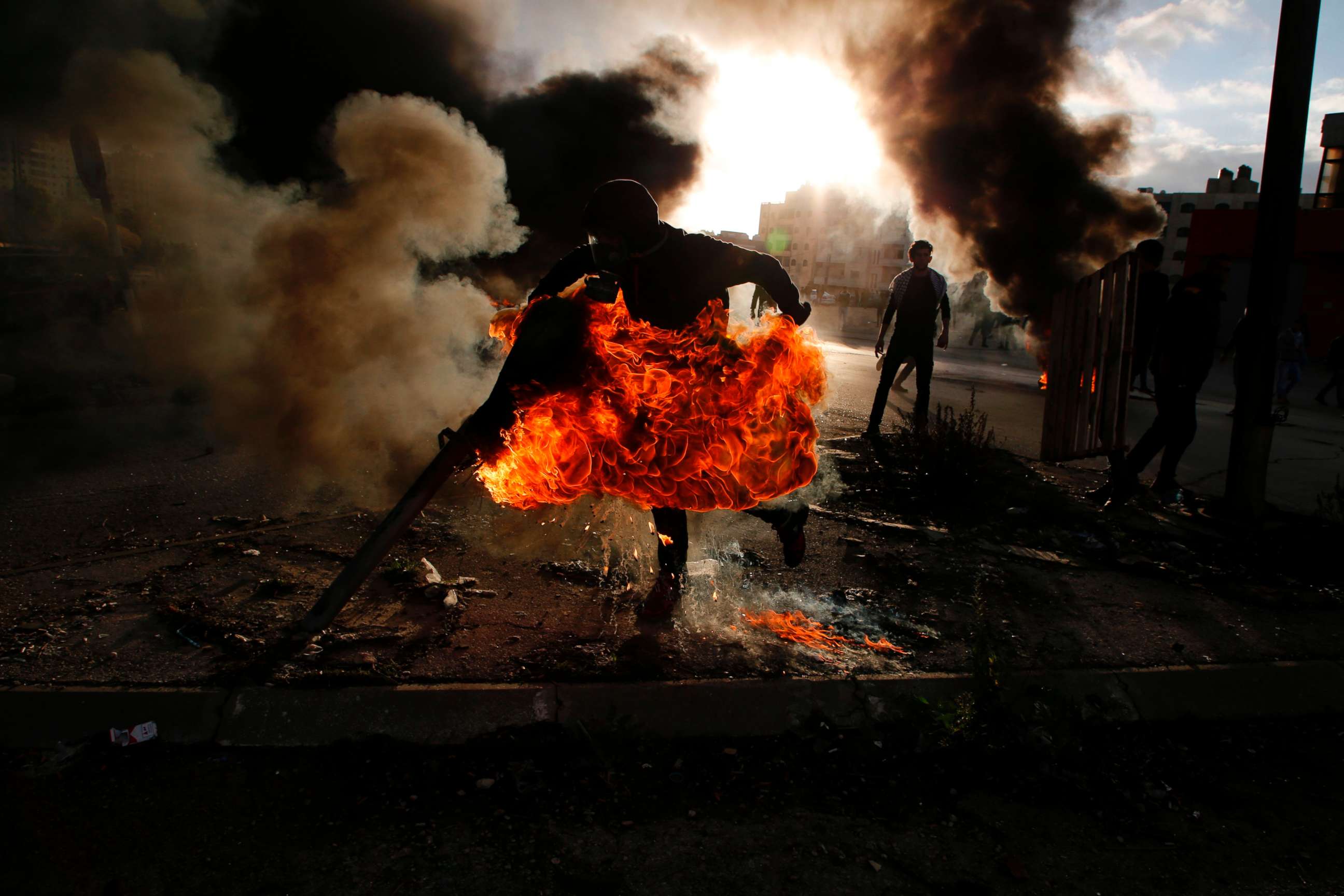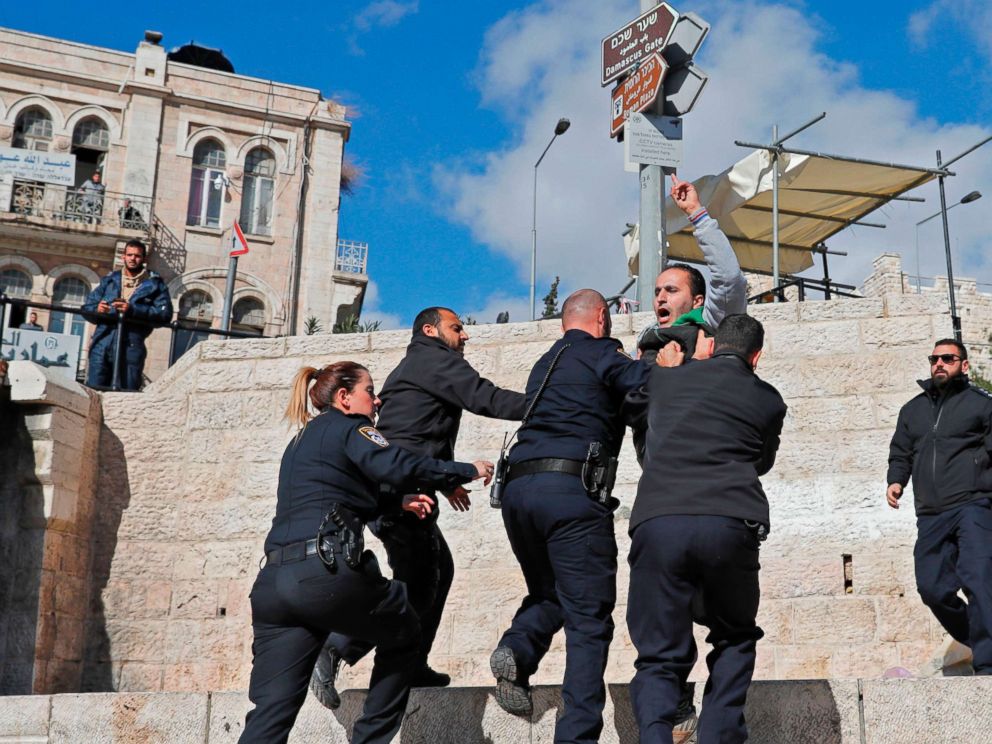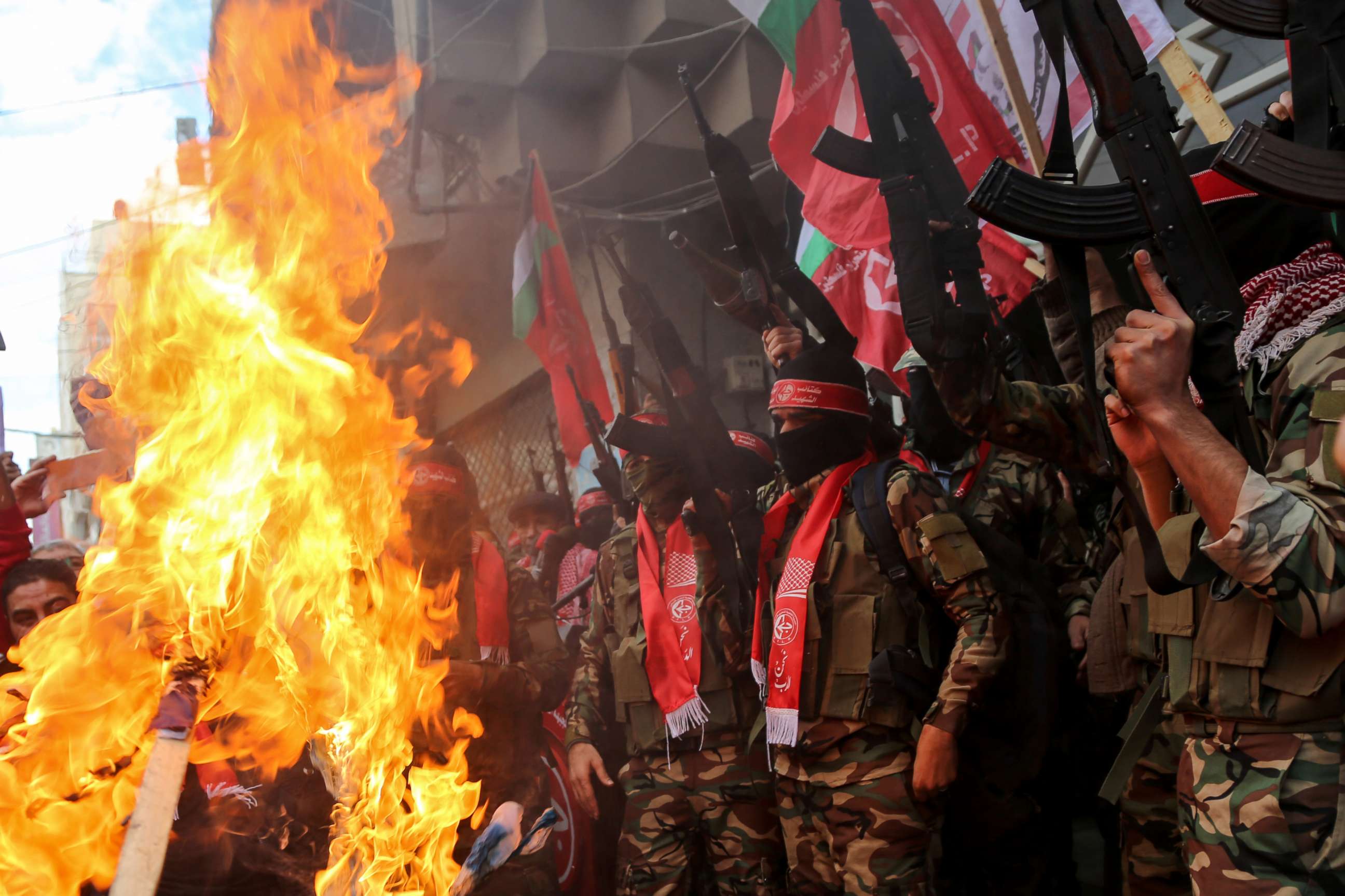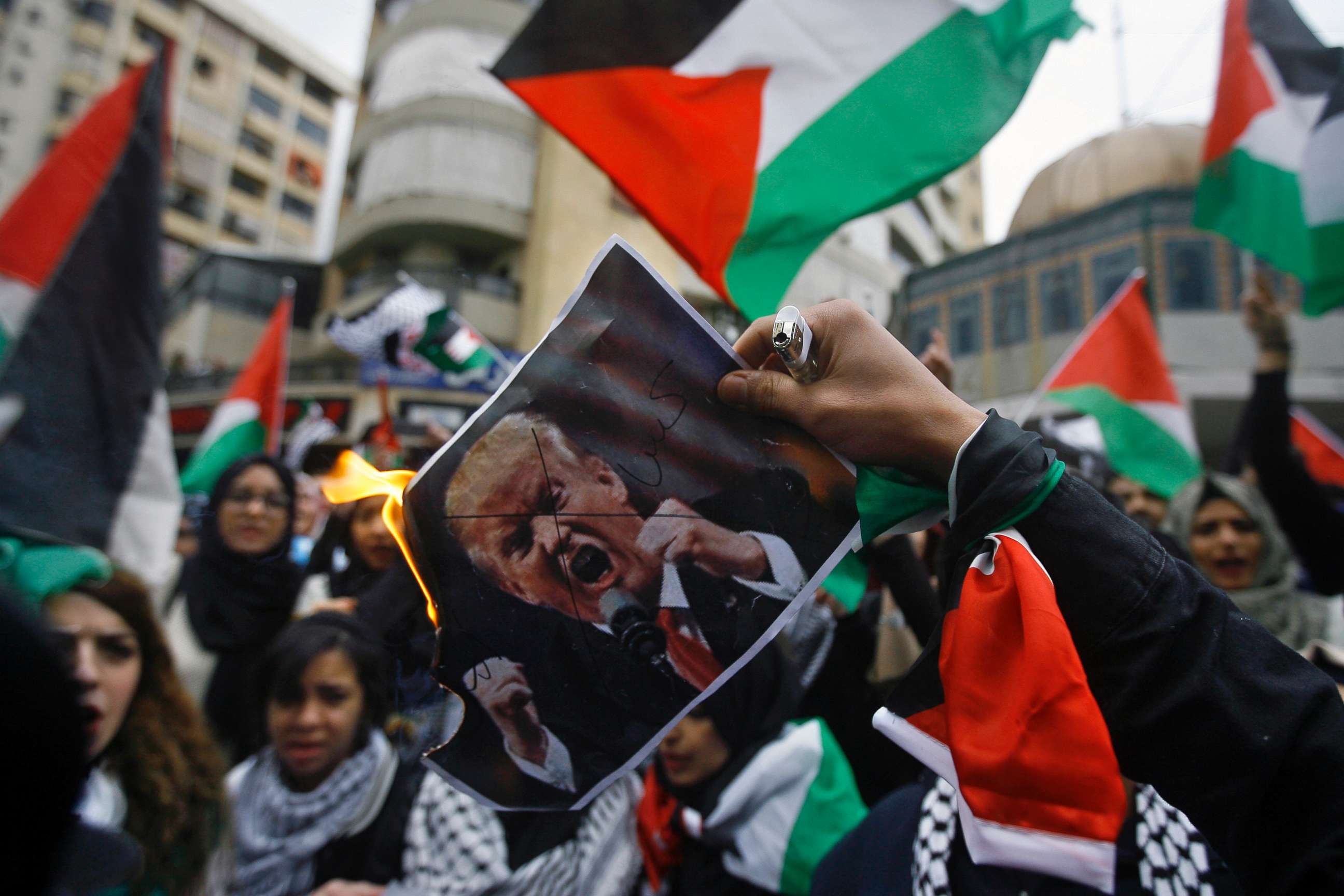Palestinians, Israeli forces clash after Trump’s Jerusalem decision
RAMALLAH, West Bank -- Palestinian protesters and the Israeli military faced off in the West Bank today -- separated by a line of burning tires spewing black smoke into the air -- a day after President Donald Trump recognized Jerusalem as Israel’s capital and started the process to move the U.S. embassy there from Tel Aviv.
In a familiar scene, at a checkpoint in Ramallah, protesters chucked homemade Molotov cocktails and used slingshots to send rocks flying across the makeshift front line toward the Israeli military.

The Israeli military tanks crept up the road to fire tear gas canisters at the protesters, sending them into retreat. The same back and forth continued for hours, amid the burning grey haze of tear gas.
"We're out here to show that Jerusalem will always be the capital for Palestine," Hussein told ABC News. The 25-year-old living in Ramallah had a red and white keffiyah scarf wrapped around his mouth, making only his eyes visible. "We have a state too, look around you, Mr. Trump."
At least 104 people have been injured in the West Bank and Gaza amid protests and clashes after Trump’s Jerusalem announcement, including four with live bullets, according to the Palestine Red Crescent. The rest were injured by rubber bullets, gas, and beatings, the Palestine Red Crescent said. Israel occupies much of the West Bank, while the Palestinian militant group Hamas controls Gaza.
For days, Middle East leaders and diplomats have been warning about a violent backlash following Trump's announcement that the U.S. now recognizes Jerusalem as the capital of Israel. The violence today, in Gaza and across the West Bank, was relatively small but significant. For the young Palestinians the anger was palpable, and raw. The protesters are of a generation that has never known the hope of the Oslo Accords, but only of the failed peace talks of the last two decades.

Palestinian President Mahmoud Abbas warned last night that Trump's announcement will lead "to wars without end."
Today, his deputy in the Fatah Central Committee, Mahmoud Aloul was at the protests to show solidarity. "Call it whatever you want, an intifada, a resistance," he told ABC News, "but Palestinians will never stop the struggle for their rights."
The Palestinian national and Islamic factions called for three days of rage, and today served as a warmup for Friday.

The leader of Hamas, Ismail Haniyeh, urged Palestinians to launch an uprising, or intifada, according to the Associated Press.
"The American decision is an aggression on our people and a war on our sanctuaries," Haniyeh said in a speech in Gaza, the AP reported.
In Lebanon, the leader of the militant group Hezbollah, Hassan Nasrallah, said in a speech that he supported the call for an intifada after "Trump fired the last bullet at the peace process."
“Palestinians shouldn’t stand alone in defending Jerusalem," Nasrallah said. "The whole Arab and Muslim world should support it.”
ABC News’ Nasser Atta contributed reporting from Ramallah, and ABC News' Lena Masri contributed reporting from London.





